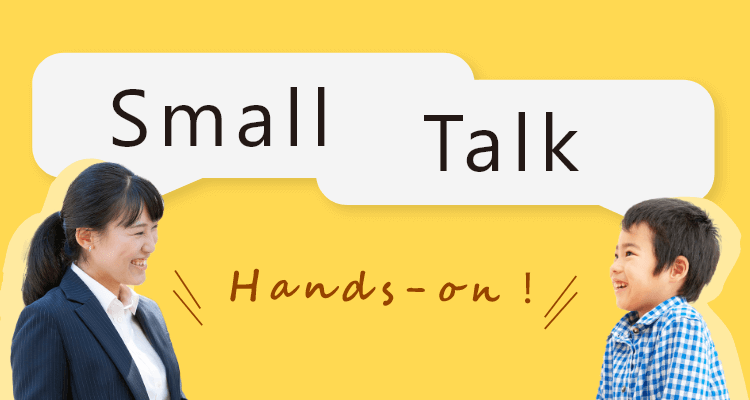中・高 Week 11-2: What subject do you like? 好きな教科は何ですか?(後)
今回は生徒たちにとって身近な話題、「教科」についてのやりとりを紹介しています。
生徒たちは、身近なこと、つまり自分のことを、英語で表現できるようになっておくべきです。留学生が学校にやってきても、外国の学校を訪問しても、自分たちが学んでいる教科の話はするに違いありません。しかしながら、教科書が「教科」についてまとめて取り上げることはないので、Small Talkのような活動のなかで、教科について話すことを経験しておくと良いでしょう。
前回は比較的シンプルな内容の展開例を紹介しました。今回は、「英語」「内容」ともに少しチャレンジングな展開を紹介します。
中・高 Week 11-1: What subject do you like? 好きな教科は何ですか?(前)
【展開例】 太字部分の質問は、ペアでお互いに質問させます。
T: Do you remember what subjects you studied when you were in the third grade in elementary school? You studied Japanese, Mathematics, Science, Social, Music, Art and Physical Education. What subject did you like the best? Why?
– What subject did you like the best when you were in the third grade in elementary school? Why?
T: S1, what subject did you like the best when you were in the third grade in elementary school?
S1: I liked Japanese the best.
T: Why did you like Japanese the best?
S1: I liked learning Chinese character.
T: Do you still like it?
S1: No, now, the Chinese characters we learn are not simple.
T: Ah, they are sometimes very complicated. What subject did your partner like when he was in the third grade in elementary school?
S1: He liked Science the best.
T: Why did he like Science the best?
S1: He says scientists looked cool to him.
日本人学習者にとって英語の「時制」は、なかなか慣れることの出来ないものの一つです。だからこそ、早い段階で何度も「使う」機会を与える必要があります。過去や未来についてやりとりができるチャンスがあれば、積極的に活かすべきでしょう。今回は、小学校時代に好きだった教科について話すことで、過去形を使ったやりとりをしてみました。
What subject did you like the best when you were in the third grade in elementary school? という質問はwhenに始まる副詞節を含むかなり長いものですが、このような文を理解し、暗記し、使った経験は必ず後で役に立ちます。この文は、この活動の段階では教師によって与えられた質問でしかありませんが、使った経験が積み重なれば、生徒たちはやがてこれらを「型」として使って自分で文を作れるようになります。

T: There are various science subjects such as Chemistry, Biology, Physics, and Earth Science. What science subject are you interested in the most?
— What science subject are you interested in the most? Why?
T: S2, what science subject are you interested in the most?
S2: I am interested in Biology.
T: Why are you interested in Biology?
S2: I am interested in living things.
T: How about your partner? What science subject is he interested in the most?
S2: He is interested in Earth Science the most because he likes learning about the history of the earth.
教科について話せるようになるためには、様々な教科名について知っておく必要があります。全てをカバーするのは難しいですが、まずは理科の科目について導入し、使わせてみました。もちろん実際にはこのようにスムーズには進みません。生徒が英語で表現できないでいることを英語にするなどのサポートが必要になると思います。
理科科目の英語での言い方を紹介するだけでも意味があると思います。私も最近まで地学の英語名がEarth Scienceであることを知りませんでした。恥ずかしい話です。
なお、この部分は社会の科目についてのやりとりにしても良いと思います。社会の科目名はやや複雑になるので、学ぶ順番としては理科が先になると思います。
What subject do you want to study in college? There are a lot of subjects to study in college, such as Economics, Law, Language, Business, History, Education, Psychology, Political Science, Medicine, Communications and so on.
– What subject do you want to study in college?
T: S3, what subject do you want to study in college?
S3: I am not sure yet, but I am interested in Language.
T: What subject does your partner want to study in college?
S3: She wants to study Computer Science. She wants to be a system engineer.
今度は未来のことを考えます。大学でどんな学問を学ぶかは、生徒らにとっては極めて重要な問題です。したがってこのやりとりは「内容」の面ではかなり重みがあります。「英語」の部分での負荷は極力抑える必要があります。
中学校3年生や高校1年生で大学進学後に何を学ぶかを決めている生徒は少ないでしょう。多くの生徒がこの質問に答えることに苦労するはずです。この質問に答えられない生徒も多いでしょう。表面的には円滑なコミュニケーションにはならないと思います。しかし、生徒たちは、このようなコミュニケーションを経験することによって、「中身」という料理がなければ、言語という「皿」もまた機能しないということを学んでいきます。
大学で学ぶ様々な学問の名前にふれるだけでも、生徒たちには良い刺激になるかも知れませんね。
今回は、「英語」の面でも「内容」の面でもやや負荷を上げた展開を紹介しました。先生方なら、どのようなやりとりをされますか?



